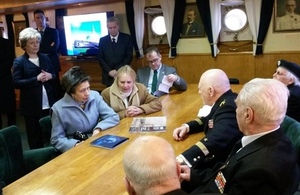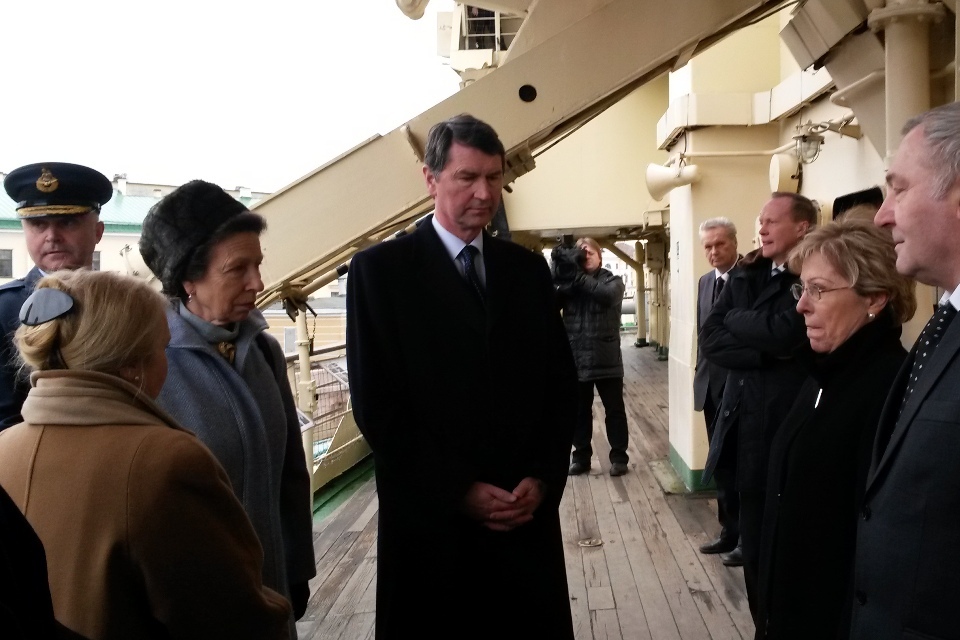Princess Royal pays tribute to Arctic Convoy veterans
Tribute to St Peterburg’s heroic past was paid by the Princess Royal today when she met Arctic Veterans aboard the made-in-Britain icebreaker ship Krasin.

Princess Anne and her husband Vice-Admiral Sir Tim Laurence toured the Soviet-era vessel where they met Russian survivors of the Second World War Arctic Convoys which were credited with ultimately helping shorten the conflict.
Princess Anne heard first-hand accounts of the incredibly harsh conditions on the Convoys. In winter sailors suffered extreme cold; in summer the constant daylight made the ships vulnerable to attack from the sky. The threat from U-boats was constant all year round. Overall, 3,000 lives were lost on what Winston Churchill described as the “Worst Journey in the World”. It was not in vain. Between 1941 and 1945, over 1,400 British, American and Canadian merchant and naval ships made 78 trips to Russia. They brought more than 4 million tonnes of supplies, mainly provisions and munitions, representing a significant contribution to the Allied war effort.
To this day Convoy veterans from the UK and Russia maintain close links. Fundraising is currently taking place for a monument to be unveiled in August 2014, on the 73rd anniversary of the arrival of the first convoy, “Dervish”, to the northern Russian city of Arkhangelsk.
In December 2012 the Prime Minister announced that the Arctic Star Medal would be awarded to convoy veterans (and the next of kin of those who were deceased) in recognition of the great bravery and particular severity of the conditions experienced by those who served in the Arctic. In November 2013 a British veteran James Pitts presented his Arctic Star medal to the Museum of Great Patriotic War in Moscow at a ceremony attended by convoy veterans from the UK and Russia.
Icebreaker Krasin was built in 1916-17 in Newcastle. Between 1942-44, Krasin led numerous convoys through the Arctic ice, before being disarmed in 1945. After the war the icebreaker took part in research expeditions in the Arctic and led Soviet cargo convoys through the polar region. Krasin made her last voyage in 1990.
